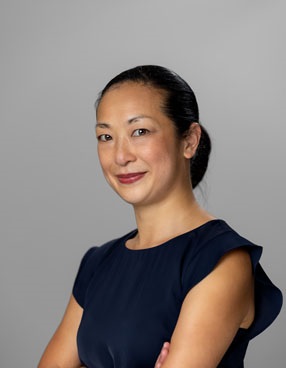EV charging infrastructure is a significant cog in the machine that is building an electric future. The scale of the challenge and the pace of change required to switch to electric vehicles has formed a fast moving and exciting industry; striving to be innovative with the welfare of the environment at its core.
As the Legal Director at Believ, a charge point operator (CPO) on a mission to deliver the UK’s most reliable and publicly accessible EV charging network, I need to ensure that sparks don’t fly, and when they do, that they’re in the right direction. The most important part of my role is to work with the senior leadership team to define what ‘good looks like’ and to turn strategies into action by shaping, negotiating and driving projects to completion.
In what is a relatively new industry, we are able to help build best practice and ways of working. As a woman, my role as Legal Director and as a member of the leadership team provides a valuable opportunity to rewrite and undo stereotypes about women working within the automotive industry.
Lack of diversity
With a background in the acquisition and deployment of mobile telecommunications networks, I have worked in a male-dominated industry of engineers, builders, and surveyors. I quickly learnt how to voice my opinions and be heard, particularly in board rooms and project negotiations. Although it wasn’t without its challenges, I generally have had positive experiences. However, I understand this is not the experience of all women working in this industry.
Traditionally both the automotive and legal sectors have been male dominated, and in the EV world, you see a perpetuated myth that women aren’t passionate about vehicles, technology, or the engineering that creates reliable, sustainable infrastructure. And in law, when thinking of a lawyer or judge, many imagine a strong male protagonist. However, in recent times these myths are being dispelled.
This is crucial in encouraging more women into these sectors.
By not encouraging women to occupy roles in the automotive, engineering and legal sectors, businesses are in danger of missing out on a talent pool that offers different perspectives, experiences and knowledge. Poor gender equity isn’t only a negative in terms of providing equal opportunity, it’s also bad for business.
Visible gender diversity, ‘seeing is believing’ is vital, and the more opportunities women are given to become a part of this industry, the more will follow, and I firmly believe that having increased numbers of women at the table offers a richer discussion.
Accelerating change
As it is at the start of its journey, the EV charging infrastructure industry has a valuable opportunity to unravel unhelpful stereotypes and gender bias in the workplace, thereby ensuring it is robust and sustainable for the future. To do this, it’s crucial that women have a seat at the table, especially in leadership positions.
Having a diverse workforce means that CPOs can better represent the society they serve, and therefore have a better understanding of EV drivers and their needs.
I’m proud that at Believ our workforce is around 50% female. From engineers to marketing, sales to operations, and within the leadership team women are key to the development and roll-out of our EV charging network.
Certainly, looking at the industry through a legal lens, my assertive character and experiences have stood me in good stead to understand what both the business and our diverse range of stakeholders require when advising on strategy, negotiating contracts and managing any differences of opinion.
Looking to the future, we’re committed to defining best practice. Believ is looking at initiatives to ensure diversity and inclusion are a vital element in its success and longevity.
I’m excited to be a part of an industry that is not only facilitating our switch to an electric future, but one that is helping switch the narrative on women in historically male-dominated industries, actively encouraging women to follow their interests and passions and not be held back by the stereotypes of yesteryear.






